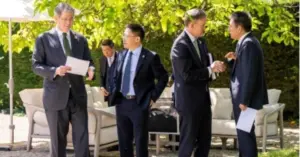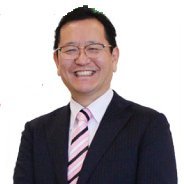U.S.-China Trade Truce Risks Falling Apart Over Rare-Earth Exports
米中貿易休戦、希土類輸出で崩壊の危機
A fragile trade truce between the United States and China, negotiated in Geneva, is now on the verge of collapse due to delays in Chinese rare-earth export licenses.
スイス・ジュネーブで合意された米中間の貿易休戦は、中国側によるレアアース輸出許可の遅延により、崩壊の危機に瀕しています。
The agreement had centered around a critical exchange: China would accelerate approvals for exporting rare-earth minerals, and the U.S. would suspend new tariffs for 90 days.
この合意の中心には、中国が重要鉱物の輸出許可を迅速に進める代わりに、アメリカが90日間の新関税を停止するという交換条件がありました。
Negotiators on both sides viewed the truce as a way to avoid escalating their economic confrontation.
両国の交渉担当者は、この休戦を経済対立の激化を回避するための手段として評価していました。
However, following the Geneva meeting, China has significantly slowed the processing of export licenses for rare-earth minerals used in automobiles, electronics, and defense applications.
しかしジュネーブ会談後、中国は自動車、電子機器、防衛産業で使用されるレアアースの輸出許可の処理を著しく遅らせています。
This delay has triggered strong reactions from the Trump administration, including public accusations that China has violated the agreement.
この遅延に対し、トランプ政権は中国が合意に違反したとして公に非難を表明し、強い反応を見せています。
President Trump stated on his social media platform that China had “totally violated” the terms of the truce, and top trade officials echoed his remarks.
トランプ大統領は自身のSNSで、中国が休戦の条件を「完全に破った」と述べ、主要な通商当局者もこれに同調しています。
U.S. trade representative Jamieson Greer emphasized that China’s delay in rare-earth approvals is the core issue threatening the deal.
米国通商代表ジャミソン・グリア氏は、中国によるレアアース承認の遅れが、合意を脅かす中核的な問題であると強調しました。
The underlying cause of China’s hesitation appears to be a U.S. Commerce Department warning issued on May 12 against the use of Huawei’s AI chips globally.
中国が消極的な背景には、5月12日に米商務省がファーウェイ製AIチップの世界的な使用に対して出した警告があると見られています。
Chinese officials interpreted the warning as renewed U.S. hostility, undermining their willingness to comply with the Geneva pact.
中国政府はこの警告を米国による新たな敵対行為と受け止め、ジュネーブ協定を履行する意欲が揺らいだようです。
Despite American clarifications that the warning was merely a restatement of existing policy, China has maintained its stance and continued delaying export licenses.
アメリカ側がこの警告は既存政策の再確認であると説明したにもかかわらず、中国は態度を変えず、輸出許可の発行を遅らせ続けています。
U.S. automakers have begun to warn the Trump administration that delays in rare-earth approvals could lead to major production disruptions.
米国の自動車メーカーは、レアアース輸出の承認遅延が生産の大規模な中断を引き起こす可能性があるとトランプ政権に警告しています。
Industry leaders fear factory shutdowns similar to those experienced during the COVID-19 pandemic if the situation persists.
業界関係者は、このままではCOVID-19パンデミック時のような工場閉鎖が再発することを懸念しています。
Trump officials reportedly anticipated the possibility that China might renege on parts of the agreement, especially regarding critical minerals.
トランプ政権内部では、中国が重要鉱物に関する合意内容を破る可能性があることを事前に予測していたと報じられています。
Within China, the rare-earth licensing regime, launched in April, is increasingly seen as a strategic tool for economic leverage.
中国国内では、4月に導入されたレアアース輸出許可制度が、経済交渉における戦略的な武器として認識されつつあります。
High-level talks have since stalled, with U.S. officials suggesting a Trump-Xi phone call might be necessary to resolve the impasse.
その後、ハイレベル協議は停滞し、米国当局者はトランプ氏と習近平氏による電話会談が打開の鍵になる可能性を示唆しています。
Trump himself has indicated he would be willing to speak with Xi and hopes for a resolution.
トランプ大統領自身も、習主席と話す意思があるとし、解決に向けた期待を述べています。
Meanwhile, a U.S. court ruling has complicated Trump’s tariff strategy, prompting the administration to prepare an alternative “Plan B.”
一方、米国内の裁判所の判決によりトランプ政権の関税戦略が複雑化し、政権は代替策として「プランB」の準備を進めています。
This plan includes further export controls targeting Chinese industries such as aerospace and chip design.
この計画には、中国の航空宇宙産業や半導体設計産業を対象とするさらなる輸出規制が含まれています。
Specifically, new restrictions are being imposed on materials needed for the C919 aircraft and software used by Chinese chipmakers.
特に、C919旅客機に必要な資材や、中国の半導体企業が使用するソフトウェアへの新たな制限が課されています。
The Chinese Embassy in Washington has accused the U.S. of abusing export controls and urged the U.S. to honor the Geneva consensus.
ワシントンの中国大使館は、アメリカが輸出管理を濫用していると非難し、ジュネーブでの合意を尊重するよう求めています。
At the same time, the Trump administration has opened investigations into unfair Chinese trade practices that could justify future tariffs.
同時に、トランプ政権は中国の不公正な貿易慣行についての調査を開始し、今後の関税発動を正当化する準備を進めています。
Possible targets include Chinese pharmaceuticals and consumer goods, potentially offsetting judicial limitations on current tariffs.
対象となるのは中国の医薬品や消費財などで、これは現行関税に対する司法的制限を相殺する意図があります。
In another escalation, the U.S. announced plans to revoke student visas for Chinese nationals studying in American universities.
さらなる対立の中で、米国は国内大学に在籍する中国人留学生のビザを取り消す方針を発表しました。
China’s Foreign Ministry condemned this move as discriminatory and politically motivated.
中国外務省はこの措置を「差別的かつ政治的」として厳しく非難しました。
Despite rising tensions, Chinese officials involved in the Geneva talks have expressed interest in continuing engagement with their U.S. counterparts.
緊張が高まる中でも、ジュネーブ協議に関与した中国側当局者は、米国側との対話継続に前向きな姿勢を見せています。
Yet, Beijing remains firm, showing no real signs of changing its position on rare-earth exports.
それでも中国政府は強硬な姿勢を崩しておらず、レアアース輸出に関する方針に実質的な変化は見られません。
An editorial from the Chinese Communist Party’s Qiushi journal criticized the U.S. for walking away from negotiations and escalating pressure.
中国共産党の理論誌『求是』は、アメリカが交渉から離れ、一方的に圧力を強めていると批判する論説を発表しました。
The editorial concluded that trade problems between the two powers will not be resolved quickly or easily.
この論説は、米中両国間の通商問題が短期間で容易に解決するものではないと締めくくられています。
英語学習と世界のニュースを!



コメント